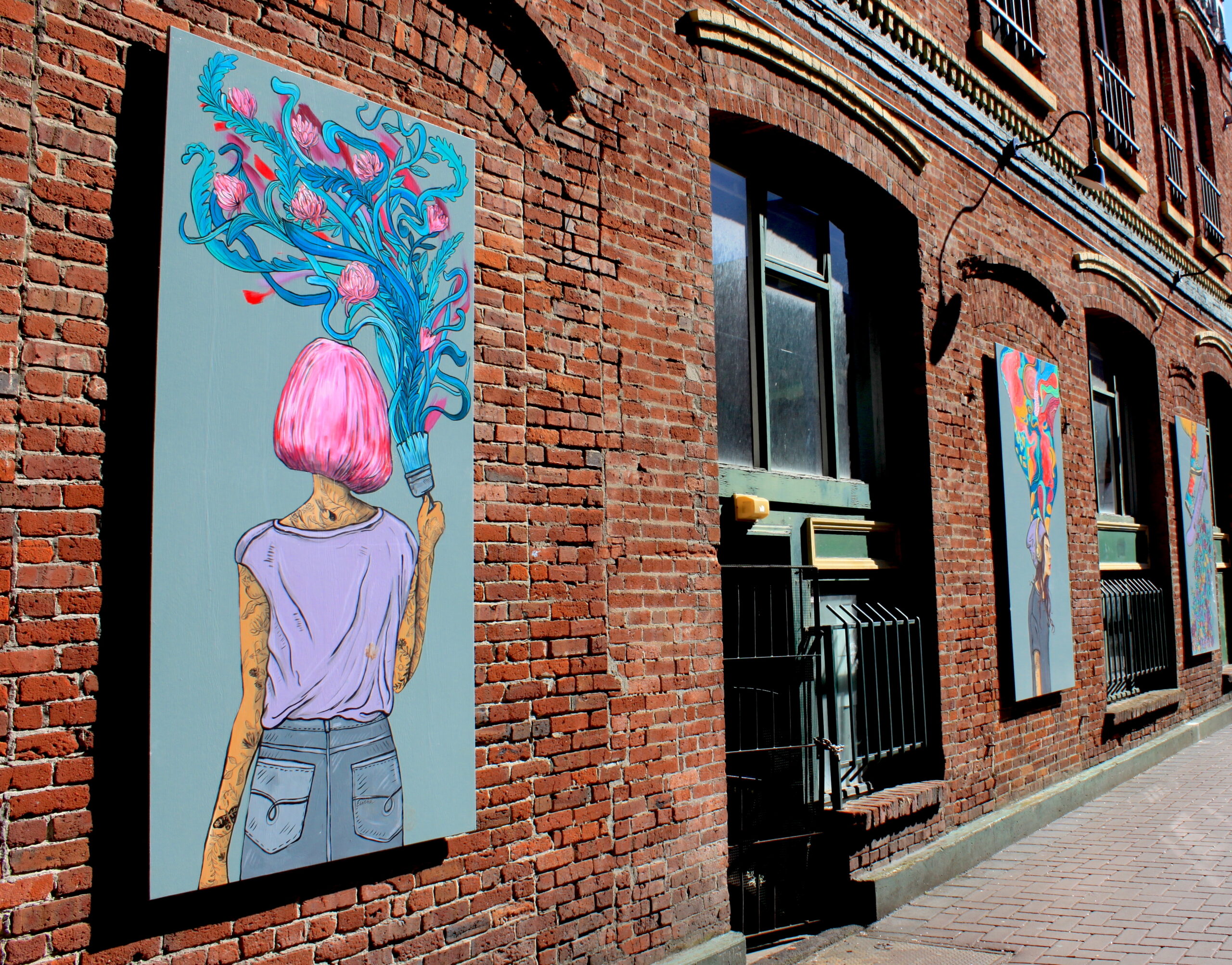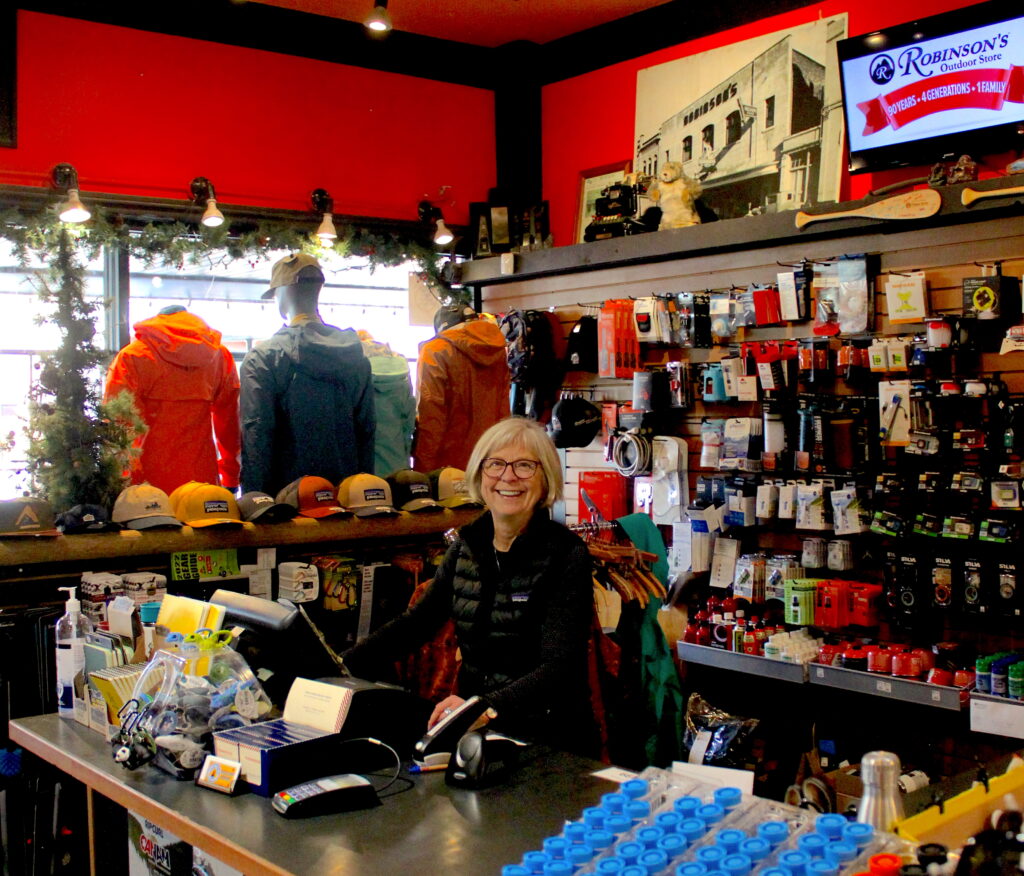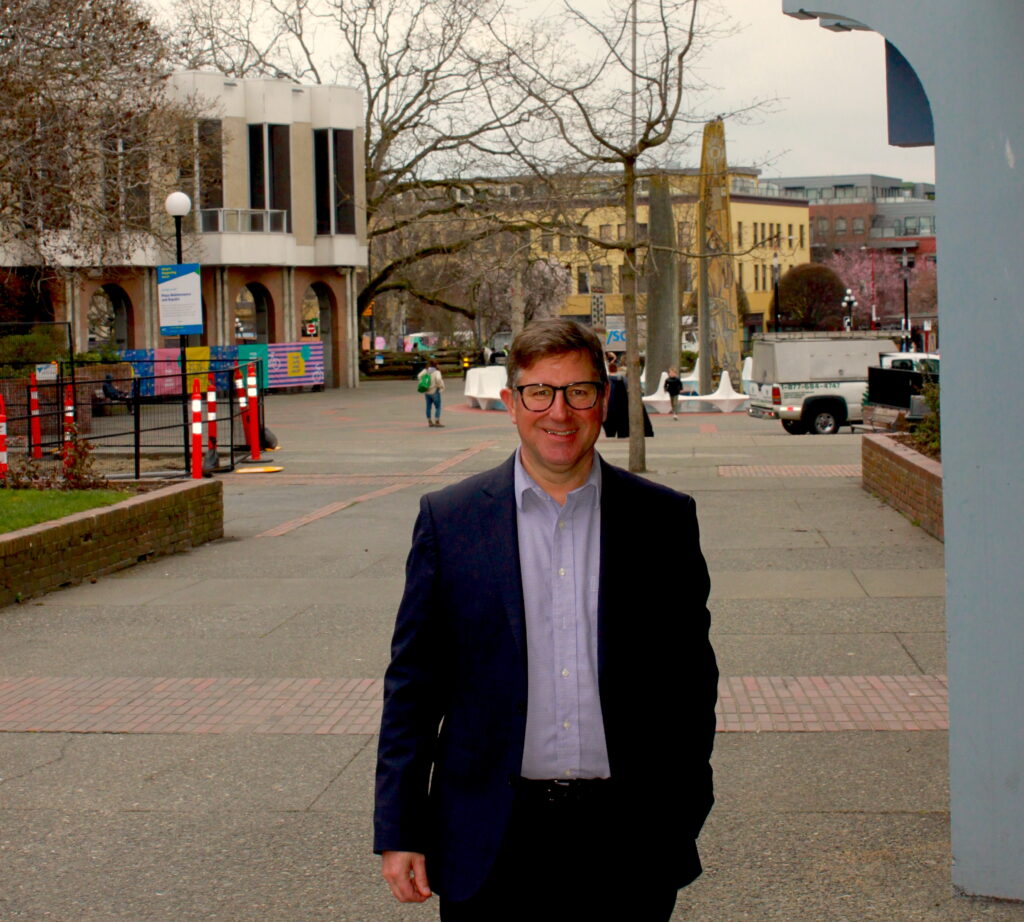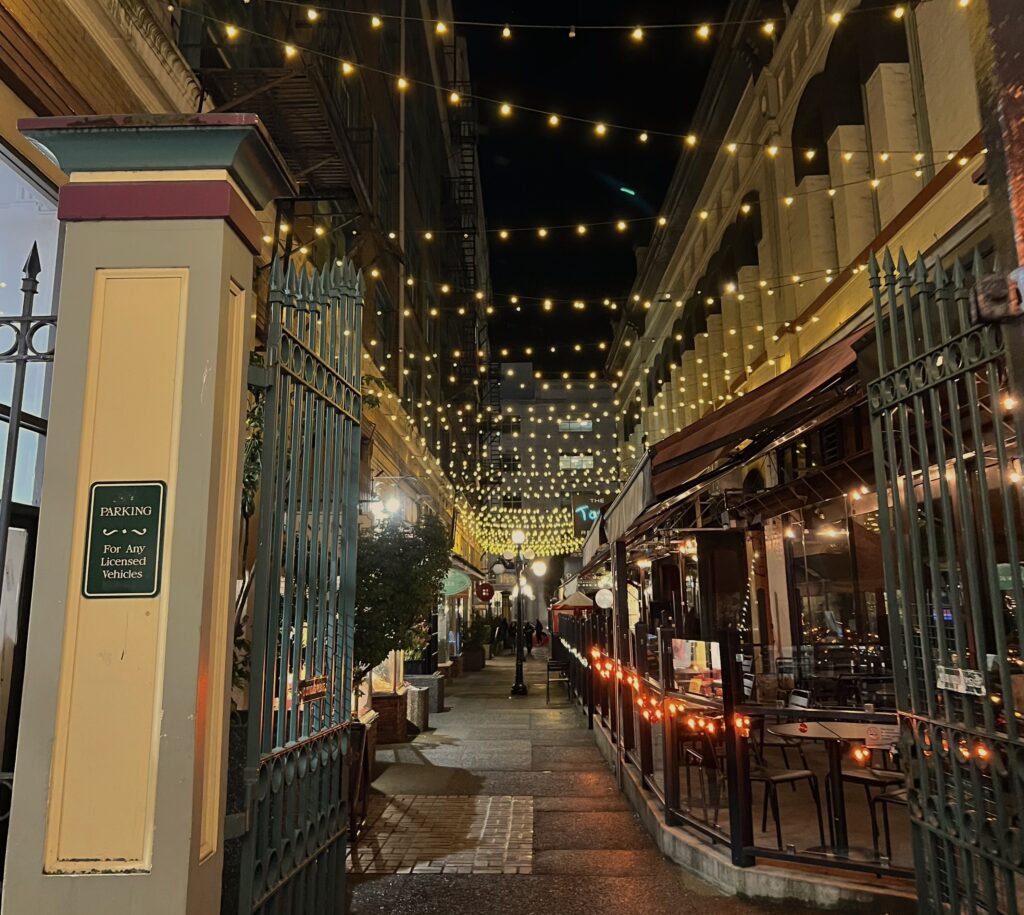The Battle Behind Our Businesses
Two Local Organizations Are Standing Up for a Prosperous Downtown

WoRds & iMaGes by alec hansen
In 2011, seventy-three Victoria shopfronts were vacant, independent businesses were being supplanted by corporate chains, and the future of our unique downtown shopping experience looked bleak. Victoria’s locally owned enterprises needed a reinvigoration.
Robinson’s Outdoor Store was opened on Broad Street in 1929 by George Robinson. Initially a bicycle repair shop, George grew it into a prototypical West Coast outdoor-supply store, and managed it through the Great Depression and World War II. George’s granddaughter, current owner Gayle Robinson, was determined not to see it become another downtown casualty. She began connecting local Victorian businesses and organizing them into a large collective that could work together to resist the effects of a slowing economy.
Robinson realized that for Robinson’s to succeed, Broad Street had to band together. In early 2012, she held meetings with a few receptive small businesses. After researching the revitalization efforts of cities like Chicago, San Francisco, Portland, and Seattle, Robinson settled on the idea of creating a local collective to raise the profile of all the businesses in the downtown core, and offer residents a sense of local pride in their shopping experience. She went to over 100 local stores, explaining the need for this movement. This grassroots organization became known as “Think Local First” (TLF), and now has 150 members.

When reflecting on local business competition over the years, Robinson notes the anxiety created when the Bay Centre opened between Douglas and Government Streets in 1989, and the potentially adverse impacts it was assumed to inflict on small businesses. These concerns were later echoed with the encroachment of big-box stores, followed by the necessity of online shopping due to COVID restrictions. TLF was created to give independent stores weaponry to battle these invaders into the local market. “Local business owners became nervous during the pandemic,” Robinson says. “But many overcame the effects by home delivery and a loyal customer base.”
TLF is a non-profit society dedicated to a healthy and prosperous local business economy. Their mandate is to raise the profile of local businesses, educate the public on the benefits of shopping locally, and prove that independent commerce can thrive in the face of new competition and economic strains. Membership offers visibility on their website and affiliated social media, discount programs, member events, and, of course, the advantages of collaboration and community with your peers. Unlike corporate business chains, TLF members don’t see the business ecosystem as a zero-sum game: rather than battling one another for the largest slice, they simply bake a bigger pie.
Working in the background to support Victoria’s vibrant scene can be a thankless job, but TLF is not alone. The Downtown Victoria Business Association (DVBA) is another non-profit organization quietly championing local businesses. Rather than compete, the two organizations are complementary—in fact, the DVBA provided seed money and a meeting venue for early iterations of TLF as part of its support mandate.
“Victorians want to see their own interests reflected in their downtown—whether that's the opera, live music, public and private art, food, shopping variety, or bars,” says Bray.
Jeff Bray, chief executive officer of the DVBA, is zealous about Victoria’s unique downtown culture. “Victorians want to see their own interests reflected in their downtown—whether that’s the opera, live music, public and private art, food, shopping variety, or bars,” says Bray. The DVBA is committed to upholding this responsibility to Victorians, ensuring local businesses and events continue to prosper.
The DVBA works in the background to support small businesses by providing grants for security services, vandalism repair, public art installations, alleyway lighting, and unique requests, like the TLF funding. When you walk through Trounce Alley off Broad Street and see the lights strung above your head, or take in the city’s many murals, you’re benefiting from the DVBA’s efforts.

Bray started his career as an income-assistance officer in Vancouver’s Downtown Eastside and eventually became the MLA for Victoria-Beacon Hill from 2001 to 2005. Working in income assistance and the legislative assembly fostered a deep understanding of Victoria’s downtown issues. In conversation, both Robinson and Bray brought up the responsibility of addressing Victoria’s homelessness and the need for better mental-health services. The DVBA encourages the characteristics that make Victoria so appealing, but also works on issues that can threaten our vibrant atmosphere.
Organizations like the DVBA and TLF ensure the stability of our city’s industry by working tirelessly, and often thanklessly, in the background. But above all else, Robinson and Bray consider citizen support vital to Victoria’s economic health. There is ample evidence throughout North America that without a strong community supporting local businesses, and store owners watching out for each other, deterioration is inevitable: crime rates and homelessness increase, strengthening arguments for online shopping and driving consumers to the big boxes on the city’s fringes.
Without a strong community supporting local businesses, and store owners watching out for each other, deterioration is inevitable.
The DVBA and TLF incentivize buying locally because your shopping dollar is a catalyst for what Robinson calls a “multiplier effect.” “In plain terms,” she says, “a 10 percent shift in shopping locally creates over 14,000 jobs and infuses $4.3 billion into BC’s economy.” Buying from local businesses means not only supporting local workers, but enabling businesses to give back to the communities that support them.
As a Victoria-raised local, Robinson’s personal investment in the city and her desire to see it prosper is deep and abiding. Many other local business owners share this sentiment, and together they have formed a strong charitable force. Robinson’s, for example, donates outdoor gear to Power To Be, a non-profit organization that enables people living with cognitive, physical, financial, and social barriers to experience nature.
There is an abundance of potential energy stored in this city, and we are fortunate to have motivated business champions like Robinson and Bray who recognize it and strive to encourage it.


